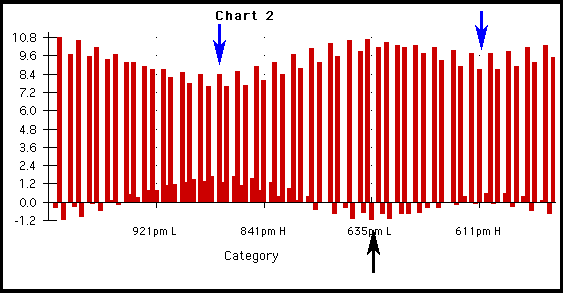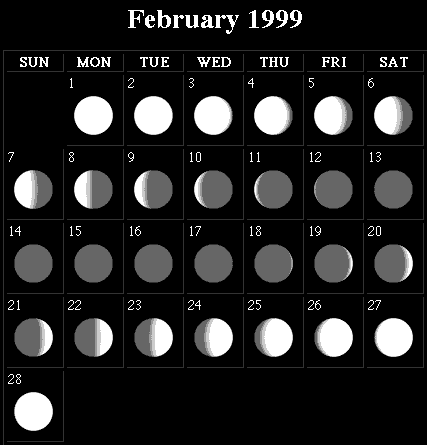Step 1 copy raw data and paste onto word processor
Raw data
Portland Maine
February, 19991 M 509am L -.4 1124am H 10.8 546pm L -1.2
2 Tu 1200am H 9.7 557am L -.3 1210pm H 10.6 630pm L -1.0
3 W 1244am H 9.6 642am L -.1 1255pm H 10.2 712pm L -.6
4 Th 127am H 9.4 727am L .1 139pm H 9.7 755pm L -.2
5 F 209am H 9.2 813am L .5 224pm H 9.2 837pm L .3
6 Sa 252am H 8.9 901am L .8 311pm H 8.7 921pm L .8
7 Su 338am H 8.7 951am L 1.1 402pm H 8.2 1008pm L 1.2
8 M 426am H 8.5 1046am L 1.3 456pm H 7.8 1059pm L 1.5
9 Tu 519am H 8.4 1144am L 1.4 555pm H 7.6 1154pm L 1.7
10 W 614am H 8.4 1243pm L 1.3 655pm H 7.6
11 Th 1250am L 1.7 709am H 8.6 139pm L 1.1 751pm H 7.7
12 F 143am L 1.6 801am H 8.9 228pm L .8 841pm H 8.0
13 Sa 231am L 1.3 848am H 9.2 313pm L .4 925pm H 8.4
14 Su 316am L .9 931am H 9.7 354pm L -.1 1006pm H 8.8
15 M 358am L .4 1013am H 10.1 433pm L -.5 1045pm H 9.2
16 Tu 440am L .0 1054am H 10.4 512pm L -.8 1125pm H 9.6
17 W 523am L -.4 1136am H 10.6 552pm L -1.1
18 Th 1205am H 9.9 607am L -.7 1220pm H 10.7 635pm L -1.2
19 F 1248am H 10.2 654am L -.8 107pm H 10.5 720pm L -1.1
20 Sa 134am H 10.3 744am L -.8 157pm H 10.2 808pm L -.8
21 Su 224am H 10.3 839am L -.7 252pm H 9.8 901pm L -.4
22 M 318am H 10.2 938am L -.4 353pm H 9.3 958pm L .0
23 Tu 418am H 10.0 1044am L -.2 500pm H 8.9 1103pm L .4
24 W 524am H 9.8 1154am L -.1 611pm H 8.7
25 Th 1211am L .6 634am H 9.8 104pm L -.1 722pm H 8.7
26 F 120am L .6 741am H 9.9 209pm L -.3 827pm H 8.9
27 Sa 224am L .4 843am H 10.2 307pm L -.6 923pm H 9.2
28 Su 320am L .1 938am H 10.3 358pm L -.8 1013pm H 9.5One pattern I can see in the numbers above is that if the first tide of the day happens after 5 AM, there is a good chance that there will only be three tide readings that day
The next step can not be taken until the numbers have been rearranged. That could be done in several ways, and the way that you discover the pattern is left to your discretion. One step that would be helpful is to place each tide reading on a separate line. If the numbers above are rearranged in that manner they would look like the following:
1 M
509am L -.4
1124am H 10.8
546pm L -1.2
2 Tu
1200am H 9.7
557am L -.3
1210pm H 10.6
630pm L -1.0
3 W
1244am H 9.6
642am L -.1
1255pm H 10.2
712pm L -.6
4 Th
127am H 9.4
727am L .1
139pm H 9.7
755pm L -.2
5 F
209am H 9.2
813am L .5
224pm H 9.2
837pm L .3
6 Sa
252am H 8.9
901am L .8
311pm H 8.7
921pm L .8
7 Su
338am H 8.7
951am L 1.1
402pm H 8.2
1008pm L 1.2
8 M
426am H 8.5
1046am L 1.3
456pm H 7.8
1059pm L 1.5
9 Tu
519am H 8.4
1144am L 1.4
555pm H 7.6
1154pm L 1.7
10 W
614am H 8.4
1243pm L 1.3
655pm H 7.6
11 Th
1250am L 1.7
709am H 8.6
139pm L 1.1
751pm H 7.7
12 F
143am L 1.6
801am H 8.9
228pm L .8
841pm H 8.0
13 Sa
231am L 1.3
848am H 9.2
313pm L .4
925pm H 8.4
14 Su
316am L .9
931am H 9.7
354pm L -.1
1006pm H 8.8
15 M
358am L .4
1013am H 10.1
433pm L -.5
1045pm H 9.2
16 Tu
440am L .0
1054am H 10.4
512pm L -.8
1125pm H 9.6
17 W
523am L -.4
1136am H 10.6
552pm L -1.1
18 Th
1205am H 9.9
607am L -.7
1220pm H 10.7
635pm L -1.2
19 F
1248am H 10.2
654am L -.8
107pm H 10.5
720pm L -1.1
20 Sa
134am H 10.3
744am L -.8
157pm H 10.2
808pm L -.8
21 Su
224am H 10.3
839am L -.7
252pm H 9.8
901pm L -.4
22 M
318am H 10.2
938am L -.4
353pm H 9.3
958pm L .0
23 Tu
418am H 10.0
1044am L -.2
500pm H 8.9
1103pm L .4
24 W
524am H 9.8
1154am L -.1
611pm H 8.7
25 Th
1211am L .6
634am H 9.8
104pm L -.1
722pm H 8.7
26 F
120am L .6
741am H 9.9
209pm L -.3
827pm H 8.9
27 Sa
224am L .4
843am H 10.2
307pm L -.6
923pm H 9.2
28 Su
320am L .1
938am H 10.3
358pm L -.8
1013pm H 9.5Now that the data is organized so that there is one entry per line the data can be pasted into a spreadsheet. I went one step further and cut each tide height reading and pasted it into the spreadsheet cell to the right of the time and H or L. Then I highlighted the two columns of data and created a chart from the spreadsheet.
I think I am onto something here. I can see that there were two times in the month ( blue arrow ) when the difference between the high tide and low tide was smallest, and once in the month ( black arrow ) when the difference between high and low tides was the greatest.

The next step is to go to the moon phase site and determine when the full moon, last quarter moon, new moon, and first quarter moons occurred. The following chart was obtained from Googolhedron Systems:

This calendar indicates clearly the first and last quarter moons, they are the half moons on the 8th (last quarter) and 22 (first quarter). By counting back from similar crescent moons on the 12th and 18th I estimate that the new moon was on the 15th. The full moon is harder to estimate because you do not have enough before February 1 or after February 28.

Use of this Web site constitutes acceptance of our Terms of Service and Privacy Policy.